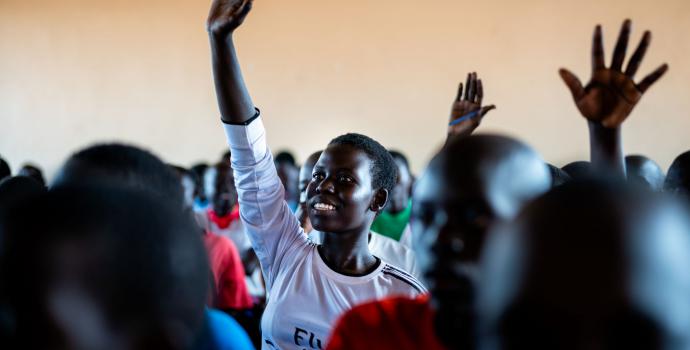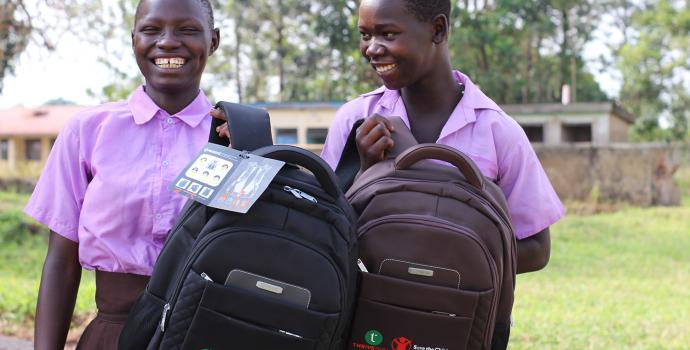New photo book: "I’m going to change the world!"

The title of our new photo book - "I'm going to change the world!" - is inspired by the words of 14 year-old Harriet*.
When she fled the war in South Sudan, her school uniform was one of the few things she grabbed. Now she’s in Uganda and head girl in her class, writing poetry about gender equality and working to become a lawyer.
She’s living proof of the power of education.
Education is every child’s right, but it also protects, enlightens and empowers. For Harriet it’s also about dignity, equality and a better future. “Someone can call me a refugee,” she says. “But I say that I’m a human being again.”
The book features some of the children who inspire our daily work – children who have experienced so much suffering but are determined to learn and help others. Children such as…
- Juliet, who got married at just 12 and gave birth to twins at 14. She’s now enrolled in our Accelerated Education Programme that is designed to help older youth complete their primary education. She’s studying while putting her young sons through nursery school.
- Grace*, 16, who missed out on school for five years because of the war in DR Congo. Her family’s poverty meant she had to work in the fields instead of going to school, but she started attending class in secret. Once her parents saw how much happier she was they gave their blessing for her to continue.
- 12 year-old Akule* who wants to be a journalist. “Our home is far from school,” he says. “It takes one hour if you rush and slowly it takes two hours. So I walk fast!”
- Peter*, 14, who was a child soldier in South Sudan, recruited into an armed group when he was just 10 years old. His dream of going to school gave him the strength to escape and flee to Uganda where he is rebuilding his life.
The book aims to show the power of education, but also the challenges in delivering it.
Uganda hosts nearly 1.4 million refugees – the third most in the world. 60 percent are children and most are not getting the education they deserve.
More than 600,000 refugee and local host community children are out of school.
For those who can attend school, classrooms are dangerously overcrowded with more than 200 children often crammed in and peering through doors and windows. Other classes are held outside under trees in the hot sun. Teachers are overwhelmed, and the quality of learning is often poor.
To try and solve this education crisis, the Ugandan government – with support from partners like Save the Children – launched the Education Response Plan (ERP) for refugees and host communities. The first of its kind worldwide, it sets out exactly how to provide children with a decent education. It shows Uganda's commitment to the Global Compact on Refugees, where the international community agreed to share responsibility for dealing with the crisis.
But 18 months after the Plan was launched, the education response is still critically underfunded.
Thanks to donors such as Education Cannot Wait and the European Union’s humanitarian funding (ECHO), Save the Children and partners are building new classrooms and repairing old ones; training teachers; making classrooms more inclusive and accessible; providing psychosocial support; and using innovative new approaches to improve learning.
But much more needs to be done.




